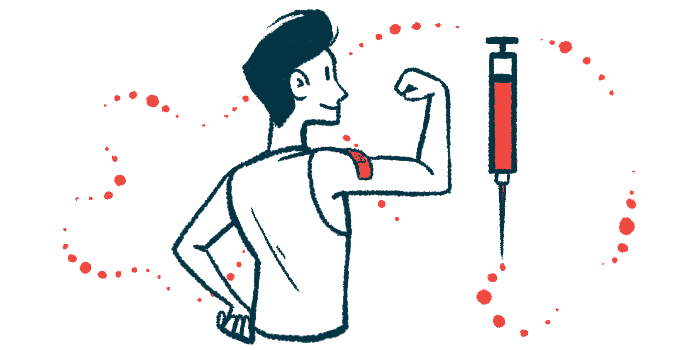Committee favors approval of under-the-skin Ocrevus in Europe
New formulation recommended by CHMP would be faster, easier for patients
Written by |

A committee of the European Medicines Agency (EMA) is recommending the approval of a subcutaneous, or under-the-skin, formulation of Ocrevus (ocrelizumab) for people with multiple sclerosis (MS) in the European Union.
The Committee for Medicinal Products for Human Use, known as CHMP, specifically recommended that this new formulation — designed to ease the treatment burden for patients — be approved for the same indications as the original intravenous (into-the-vein) medication, namely for adults with relapsing forms of multiple sclerosis and primary progressive MS.
The CHMP’s positive opinion was based on data from the Phase 3 OCARINA II trial (NCT05232825), in which the two formulations resulted in similar levels of ocrelizumab in circulation and led to comparable reductions in relapses and MRI disease activity. Both also were well tolerated, with no new safety signals reported.
The subcutaneous formulation, given via an injection taking 10 minutes versus the current two- to four-hour infusion, provides a faster and more convenient method of administration for patients.
The committee’s recommendation now will be analyzed by the European Commission, which is expected to make a final decision on whether to approve the formulation in the coming months.
“The CHMP’s recommendation brings us a step closer to offering the 10-minute Ocrevus [subcutaneous] injection in the EU, expanding access to even more people with MS who could benefit from this treatment,” Levi Garraway, MD, PhD, Roche’s chief medical officer and head of global product development, said in a company press release.
Approval decision on subcutaneous Ocrevus expected in EU in coming months
Ocrevus is an antibody-based medication that works by blocking a protein found at the surface of B-cells, immune cells that contribute to MS-driving inflammation. The treatment is designed to reduce the number of these cells, which is expected to help reduce disease activity and slow disability progression.
The therapy is approved in the U.S. and Europe as an intravenous infusion formulation. However, some patients may find it difficult to access infusion facilities and some MS centers may also have limited capacity to deliver these infusion medications.
Roche notes that the subcutaneous injection allows for a faster administration. It’s still designed to be given by a healthcare professional, but this formulation provides more flexibility for the administration to happen outside the clinic or in centers lacking intravenous facilities.
The OCARINA II trial was designed to compare the safety, efficacy, and pharmacological properties of subcutaneous versus intravenous Ocrevus. It involved 236 adults, ages 18 to 65, with PPMS and relapsing forms of MS.
Patients were randomly assigned to receive either a 920 mg dose of the subcutaneous formulation or the approved 600 mg dose, given in two intravenous infusions two weeks apart. Participants were followed for 24 weeks, or nearly half a year, after which all received the subcutaneous formulation every six months up to about two years.
After one year, the results showed that more than 97% of patients on either formulation were free from relapses. Specifically, the average number of relapses per year were 0.04 in the subcutaneous group and 0.02 in those who switched from the intravenous formulation. Also, most patients had no inflammatory lesions or new or enlarging lesions after this period. Lesions are areas of abnormal tissue in the nervous system, comprising the brain and spinal cord.
Importantly, the vast majority of patients were satisfied or very satisfied with the subcutaneous formulation. Most felt it was convenient, and thought the time needed for the injection was just right.
If approved, this formulation would be the first and only therapy approved for people with relapsing forms of MS and PPMS given twice a year with a 10-minute injection, the company noted.



